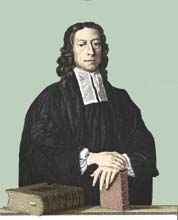
MARCH 3
Religion has nothing sour, austere, unsociable, unfriendly in it; but, on the contrary, implies the most winning sweetness, the most amiable softness and gentleness.
Works, xii. 47; Letter, 29th March, 1737
I have heard my mother say: ‘I have frequently been as fully assured that my father’s spirit was with me as if I had seen him with my eyes.” But she did not explain herself any farther. I have myself many times found on a sudden so lively an apprehension of a deceased friend that I have sometimes turned about to look; at the same time I have felt an uncommon affection for them. But I have never had anything of this kind with regard to any but those that died in faith. In dreams I have had exceeding lively conversations with them; and I doubt not but they were then very near.
to Lady Maxwell, 1769





























